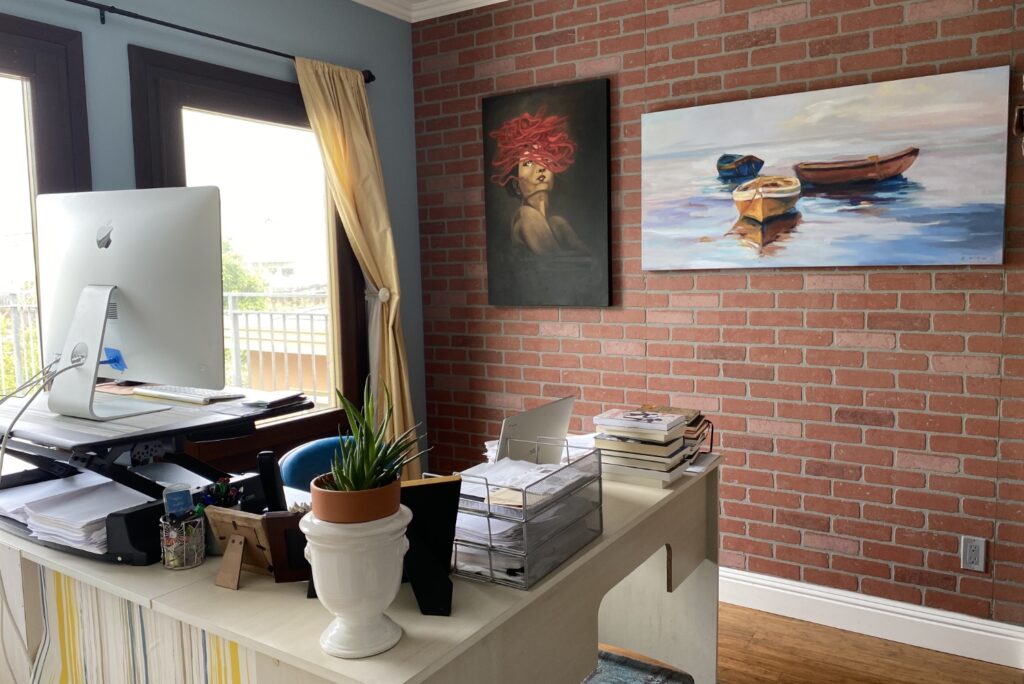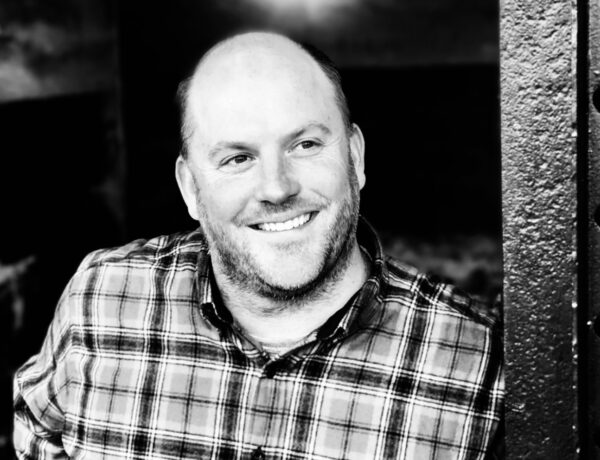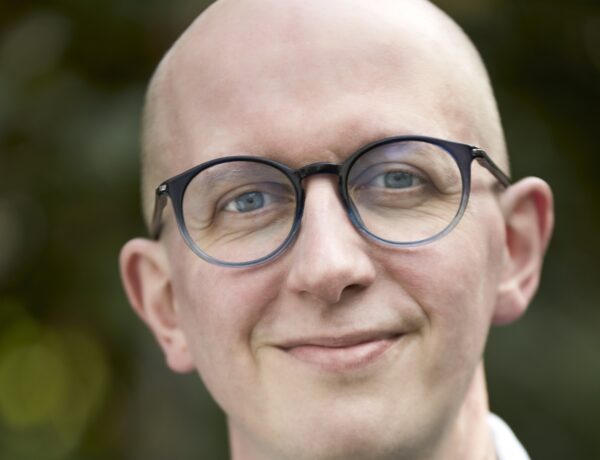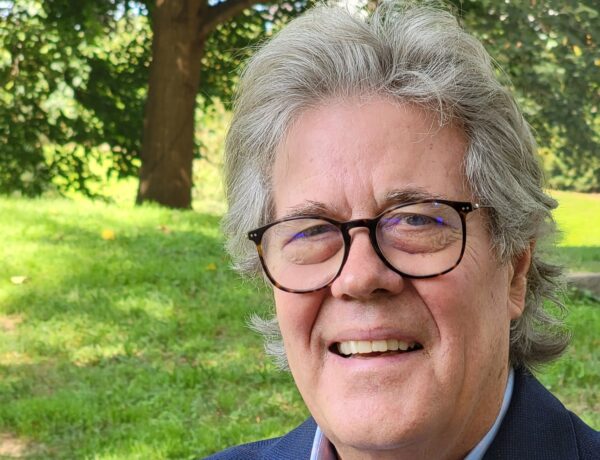Ethel Rohan is the author of In the Event of Contact, winner of the Dzanc Books Short Story Collection Prize, the Gold IPPY Award for Best European Fiction, and the Eric Hoffer Short Story Collection Award.
Her debut novel The Weight of Him (St. Martin’s Press and Atlantic Books, 2017) was an Amazon, Bustle, KOBO, and San Francisco Chronicle Best Book. The Weight of Him won a Plumeri Fellowship, Silver Nautilus Award, the Northern California Publishers and Authors’ Award, and was shortlisted for the Reading Women Award.
She is also the author of two story collections, Goodnight Nobodyand Cut Through the Bone, the former longlisted for The Edge Hill Prize and the latter longlisted for The Story Prize. She wrote, too, the award-winning chapbook Hard to Say (PANK, Editor Roxane Gay) and the award-winning e-memoir single, Out of Dublin(Shebooks, Editor Laura Fraser).
Rohan was longlisted for The Sunday Times EFG Short Story Award, winner of the Bryan MacMahon Short Story Award, and shortlisted for the CUIRT, Roberts, and Bristol Short Story Prizes. Her work has appeared in The New York Times, World Literature Today, PEN America, The Washington Post, Tin House, The Irish Times, and GUERNICA, among many others. She has reviewed books for New York Journal of Books, and elsewhere.
Her stories have also published in various anthologies including Without You: Living With Loss (Ballpoint Press, 2018); Reading the Future: New Writing from Ireland (Arlen House, 2018); THE LINEUP: 20 Provocative Women Writers (Black Lawrence Press, 2015); Winesburg, Indiana (Indiana University Press, 2015); DRIVEL: Deliciously Bad Writing by Your Favorite Authors (Penguin: Perigee, 2014). She is also a contributor and associate editor to the anthology Flash Fiction International (W.W. Norton, 2015).
Rohan has taught writing or was a featured author at Listowel Writers’ Week; Belfast Book Festival; The London Short Story Festival; The Abroad Writers’ Conference; Los Gatos-Listowel Writers’ Week; the Frank O’Connor International Short Story Festival; Book Passage Corte Madera; San Francisco State University; The Writers Grotto; San Francisco Writers’ Conference; Green Mountain Writers’ Conference; among others. Rohan received her MFA in fiction from Mills College, Oakland, California, and is a member of The Writers Grotto. From Dublin, she divides her time between Ireland and California.
Each week, we publish a new daily writing routine from a famous author. Subscribe to our newsletter so you don’t miss out!
Hi Ethel, thank you so much for being here with us today. We’re excited to chat to you about your writing process. For those who may not know, can you please tell us a little bit about yourself?
Hi there, I’m delighted to be here, thank you. I was born and raised in Dublin, Ireland and immigrated to San Francisco in the early ’90s in search of a fresh start. I’m a mother, novelist, essayist, and short story writer and have been writing professionally since my youngest daughter started kindergarten 15 years ago. In a nutshell, I write about the broken and attempts at repair.
Can you take us behind the creative process for your book In the Event of Contact?
I’m an avid reader and writer of short stories. In the Event of Contact collects fourteen short stories I wrote over the past decade, some of which were previously published in online and print literary magazines. The collection came about when I realized I had written enough stories with a linked theme that I believed were worthy of a book: the absence, necessity, and abuse of contact in its various forms.
My creative process is the same for all my writing, regardless of the genre. I show up, sometimes inspired and knowing at least the starting spark, and other times having no clue what I will write. The key is to keep showing up.

What does a typical writing day look like for you?
I mostly write in my home office, where I alternate between standing at my desktop and sitting at my laptop or a notebook. I’m also a member of the Writers Grotto, a communal office space in downtown San Francisco where writers gather to work and to support each other. I love this crackling community and always find inspiration among them.
I like to write in the mornings, as early as possible. I can’t write at night. Nights are for cooking, dining, family, TV, and sleep. Writing is a muscle that requires regular exercise and I write daily where possible. That’s a privilege not available to everyone. So the goal is to keep ourselves honest and write as often as we can.
I’ve also broadened my definition of what it means to write every day. Reading and listening to podcasts and audiobooks are a vital part of the writing life, as is being a good literary citizen and community member. Imagining characters, scenes, and plot is also writing. Nourishing myself each day also ultimately nourishes my writing over the long haul. That’s me rationalizing that taking care of myself is a form of writing, or at least greatly supports my writing!
I consider it a good writing day whenever I can put my head on my pillow and confirm I prioritized my wellbeing that day and–in one way or another–attended to my writing, to books, and to the literary community.
I’d love to hear more about your experiences at the Writers Grotto. How does writing there inspire your work?
Sharing an office space with other creatives elevates our collective energy. There’s a contagious charge to working alongside each other that fuels imagination, productivity, and success.
When we’re not working independently or collaborating together inside the space, we enjoy communal lunches, various lit and art events (in-house and beyond), and lend each other support in a variety of ways–everything from critiquing each other’s work, to cheering each other on, to nursing disappointments, to sharing resources, such as opportunities and contact information; query letter and book proposal samples; and advice and recommendations for any number of things.
So much of the writing life is solitary and that makes the hallowed, thriving community that is the Writers Grotto as welcome as it is vital. I believe we’re currently at 120+ members and counting.
Can you talk about some of your must-have writing tools?
I’m low maintenance and not particularly precious about the process. When I’m not typing on a computer, I write longhand into composition notebooks, and am partial to Dingbats notebooks. But any and all blank pages work, even scraps of paper in a pinch. My favorite pen is the Pilot G-2 10.
Do you have a target word count that you like to hit each day?
I don’t. I write scene by scene and consider a writing session successful when it yields a scene (or two!) with a beginning, middle, and end. In the early years I was a perfectionist and spent way too much time polishing sentences when I didn’t yet know the story. Painstaking sentences that were often deleted in later drafts because they weren’t contributing to the story. First drafts are for finding the story, not for honing. That comes later, in revision, and that’s when I aim to make every sentence, every word, its best and in absolute service to the particular story I’m writing.
Whenever you hit a roadblock during a writing session, what are some of the methods you use to get back into the flow of things?
I tend to write longhand when I’m stuck. I find handwriting frees the subconscious and restarts flow. I’ve also had a lot of success with automatic writing (writing with our non-dominant hand). Walking, showering, and watching birds also ignite new ideas and breakthroughs. I love to sit and daydream, conjuring moments and scenes in my imagination and then transcribing them onto the page.
Through no small fault of the pandemic and the general terrible state of the world, I’ve been plagued this past year by inertia and a loss of meaning and purpose. I’ve become disillusioned in publishing, in people. It’s a terrible place to be, and I’m clawing my way out. Thank you for this opportunity to revisit my history, process, and motivation. Sitting with these questions and answers is helping reenergize my passion for books and writing, and rekindle in me that essential trait for storytelling: empathy.
What does your writing workspace look like?
It’s bright, pretty, and filled with things I like (I’m including photographic evidence). [Narrator: Friends, it is rarely this tidy.]

Before you go…
Each week, we spend hours upon hours researching and writing about famous authors and their daily writing routines. It’s a lot of work, but we do it out of our love for books and learning about these authors’ creative process, and we certainly don’t expect anything in return. However, if you’re enjoying these profiles each week, and would like to send something our way, feel free to buy us a coffee!



No Comments